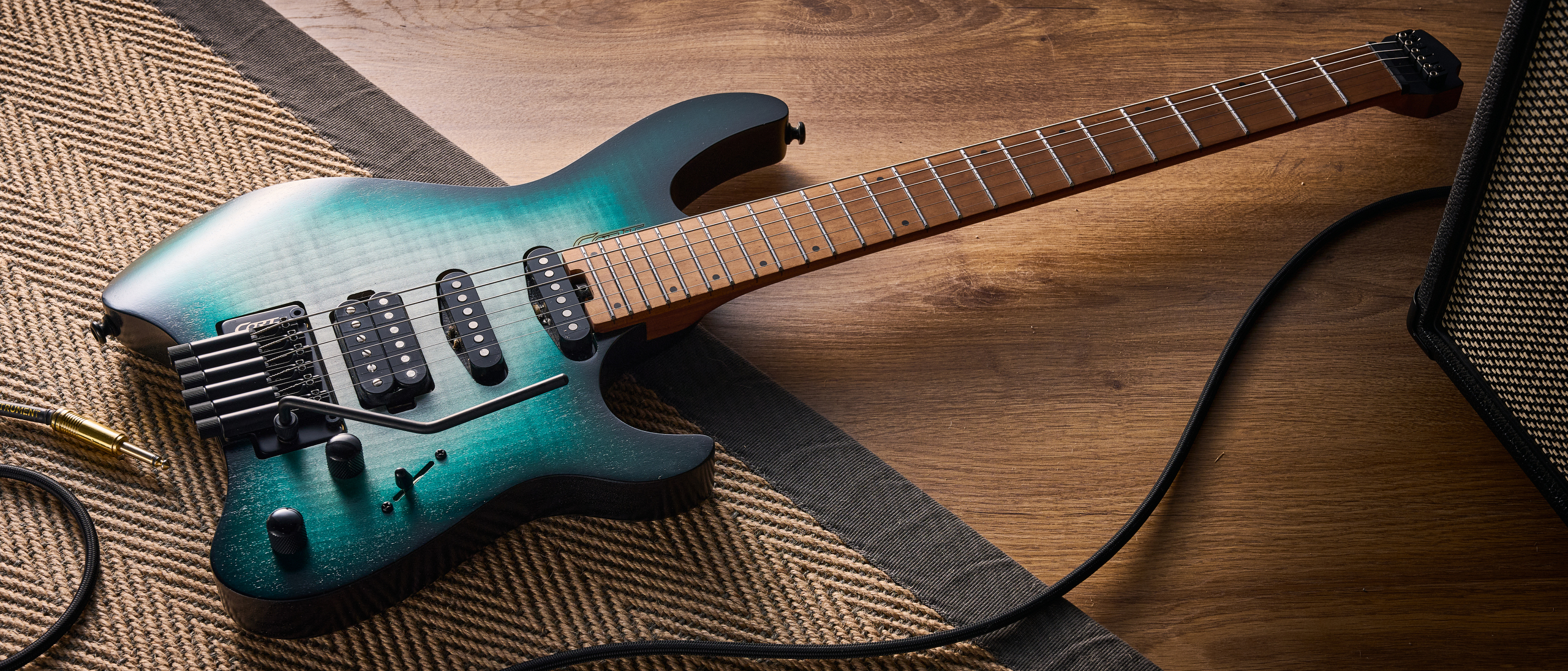Legendary producer Ken Scott says Steve Morse is the best guitarist he has ever worked with
Scott has worked with Jeff Beck, the Beatles, Mick Ronson, Pink Floyd and more, but he reveals why Deep Purple and Dixie Dregs guitarist is the greatest of them all

All the latest guitar news, interviews, lessons, reviews, deals and more, direct to your inbox!
You are now subscribed
Your newsletter sign-up was successful
Producer Ken Scott has recorded everyone. Or maybe it just seems that way. Graduating through the ranks as engineer at Abbey Road, Scott worked with the Beatles, the Jeff Beck Group, Pink Floyd to name a few.
Later he would produce and engineer David Bowie’s Hunky Dory and The Rise and Fall of Ziggy Stardust …, and Visions of the Emerald Beyond by the Mahavishnu Orchestra. He would reunite with George Harrison, engineering his solo albums, Wonderwall Music and All Things Must Pass.
Scott has seen it all, some of the world's greatest players first hand, but out of all the great guitarists he has worked with, Scott says Deep Purple's Steve Morse is the best. Indeed, Morse is so good that, after working with him on the Dixie Dregs, Scott had an enhanced appreciation of pitch that made everyone else sound out of tune.
Scott was speaking to Gary Kemp (Spandau Ballet) and session bass legend Guy Pratt (Pink Floyd, Roxy Music etc) as a guest on their Rockonteurs podcast when he was asked about the guitar players he has worked with. Morse, he says, was the best, even better than Beck, whom Scott worked with on Truth, Beck-Ola, and There & Back.
“Steve Morse, as far as I’m concerned, is the best guitarist I’ve ever worked with,” Scott said. “He could cover every style and he knew what was needed. Jeff Beck is great, but Jeff has a certain style which he is brilliant at, whereas Steve, he covers all styles, from classical, acoustic – there’s one track on one of the albums called Little Kids which is him and just solo violin, which is brilliant.”
Scott observed Morse’s genius up close in March 1978 when he produced and engineered the Dixie Dregs’ sophomore studio album, What If, and its follow-up, Night of the Living Dregs. Working with Morse spoiled him for musical projects to follow.
“He has perfect pitch,” says Scott. “I did two albums with him and the next couple of albums after that, I was having major tuning problems with the band. My sense of pitch had become that much closer to perfect pitch that when they were slightly out, it became painful.”
All the latest guitar news, interviews, lessons, reviews, deals and more, direct to your inbox!
Not that there was ever much wrong with Scott’s ear. In a wide-ranging interview that covers all eras of his career, Scott described David Bowie’s processes, his talent for acquiring talent and letting them shape his sound. Talent such as Mick Ronson, with whom Scott recorded one of the greatest guitar solos of all time – the Moonage Daydream solo from 1972’s The Rise and Fall of Ziggy Stardust and the Spiders from Mars.
Scott revealed that what we are hearing there was some post-production work on Ronson’s guitar, recording his '68 Les Paul Custom flat and then adding and subtracting reverb to taste.
“I have this thing, I’ve done it with other guitarists as well. I like the low end of the guitar to be right in your face,” explained Scott. “And the higher they go, I like to be airier. So as he’s going up the fret board I’m adding more reverb, and as he comes back down, I pull the reverb back down. I’m playing the reverb as he plays the guitar.”
Scott also talks about Ronson’s cocked-wah electric guitar sound, where he would be “messing around” with his wah pedal’s treadle until he found the sweet spot in the filter, parking it there and using that for his sound. “That was the sound,” he said. “Every one of his guitar sounds was done exactly the same way.”
You can listen to the full interview with Scott and more on the Rockonteurs podcast.
Jonathan Horsley has been writing about guitars since 2005, playing them since 1990, and regularly contributes to publications including Guitar World, MusicRadar and Total Guitar. He uses Jazz III nylon picks, 10s during the week, 9s at the weekend, and shamefully still struggles with rhythm figure one of Van Halen’s Panama.

